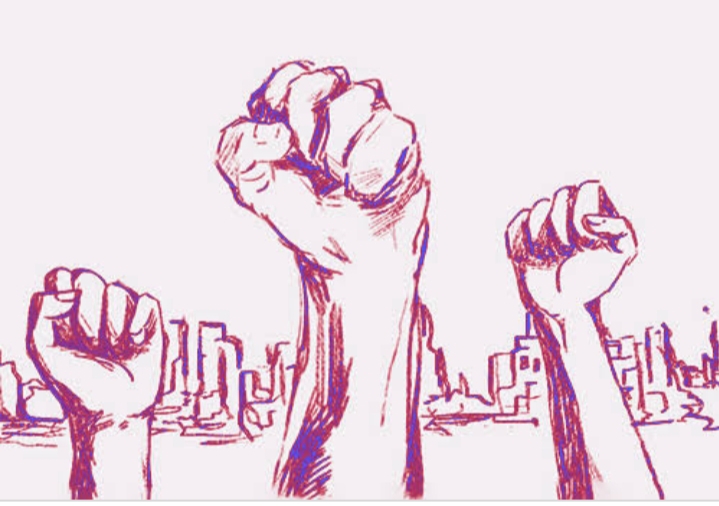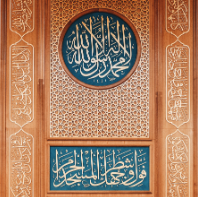– Ahmed Osama Jafri (Dip. Comp. Engg, AMU)
We will start with clarifying a few things about “Islam” and “Humanity” which are two words used the most in today’s world. “Islam” is a word which the developed as well as the developing countries love very much. Their leaders have to repeatedly argue that Islam is a very good religion, etc. For example, former US President George W. Bush said on September 17, 2001, a few days after the terrorist attacks on the WTC, “When we think of Islam, we think of a religion and belief that brings peace and comfort to millions of people around the world”. Similarly, the quotes of different countries’ heads can be googled. Like the current P.M. of our beloved country, Narendra Modi, on March 17, 2016 said “When we read the 99 names of Allah, we find that none of the words are used in the sense of force or war. Instead, the first two words, Rahman and Raheem, are used for sheer mercy.”
The second word, “humanity” is also used a lot globally. In the name of human rights, institutions and organisations run at the government level in every country, and there are extensive government aid schemes for such non-governmental institutions and organizations. Its importance is such that even in the most dangerous wars, the voice for the protection of human rights continues to be raised, and the countries involved in these wars continue to assure the protection of these rights. We all know whatever happens inside the prisons, but it is assured that the government has fully managed to respect and pay for human rights.

“Regarding human rights, Islam does not value any caste, religious, geographical, or political boundaries.”
Understanding the interrelationship of these two important terms is very important for this Ummah, which has been sent to the world for the good of people, so that it commands them to do good things and prevents them from doing bad things. Allah has clearly defined the cause of the creation of mankind, that
“I have created the jinn and humankind only that they might worship (serve) Me.”
Two facts became clear in this decree: One, mankind was created by Allah and second, the purpose was to worship Him. The main characteristic of the worshipper or enslaved is that he is a human being. Allah also said, in relation to this creation,
“O people, we created you from a male and a female and divided you into branches and tribes so that you may recognise each other. Indeed, in the sight of Allah, the most honourable among you is the one who is the most pious among you. Indeed, Allah is all-knowing and all-aware.” (Al Hujraat-13).
The entire idea of human creation, as mentioned in the Quran and Sunnah, is completely opposite to other religions, thoughts, and ideas. According to Islam, humans were not sent into the world as a punishment, nor were they created by chance or without any intention. In fact, Islam makes humans the best of creation. He does not consider humans as one of the other components and creatures of the entire universe but makes a connection between them all. From this concept, the reality of humans according to Islam becomes clear which Dr Allama Iqbal described in this couplet:
Na tu zameen ke liye hai na aasmaan ke liye,
Jahaan hai tere liye tu nahiin jahaan ke liye..
It doesn’t just stop there, but raises the value and importance of human life to a level which today’s ‘humanitarian’ world cannot even imagine.
“Because of that, We decreed upon the Children of Israel that whoever kills a soul unless for a soul or for corruption [done] in the land – it is as if he had slain mankind entirely. And whoever saves one – it is as if he had saved mankind entirely.” (Al-Maidah-32).

“I have created the jinn and humankind only that they might worship (serve) Me.” (Qur’an 51:56)
Islam also teaches its followers that a person may belong to a different community, caste, region, or speak a different language, but ultimately he is a human being. Nothing can break this relationship except how faithful slaves they are or rebels to their Creator. Despite this distinction, it strongly emphasises on giving them their basic rights.
The Quran says, “You will surely find the most bitter towards the believers to be the Jews and polytheists and the most gracious to be those who call themselves Christian. (5:82).”
The example of how Islam upholds human rights is demonstrated through the story of Hazrat Ali A.S., who lost a legal dispute to a Jew, despite the above verse that may seem to take a strict stance against non-believers. This highlights the value of justice in Islam and how it does not discriminate based on religion. The incident of the dispute between the camel seller and Abu Jahl also carries a meaningful message for all individuals. These examples emphasize the significance of human rights within the Islamic faith.
Talking about human rights doesn’t mean that we are discussing them just because the rest of the world is doing so. It is to explain the overall Islamic ideology. It is necessary to understand why Islam, being a peaceful religion, talks of “bloodshed”, “war” and “terrorism”, i.e., Jihad, or talks of “Dharam Parivartan”, i.e., Dawah, if it also allows people to follow their faith. Everyone uses these terms. Muslims also feel fear from these two concepts but can’t keep themselves away from acts that indirectly make Islam a matter of pondering for others.
Regarding human rights, Islam does not value any caste, religious, geographical, or political boundaries. Prophet Muhammad ﷺ said, “No black has any superiority over white and vice versa, neither an Arab over a non-Arab nor a non-Arab over an Arab.”
On the other hand, Jews oppressed everyone. Christian kings made every non-Christian a slave. By Varn Vyawastha, Brahmins exploited the whole society; the upper class exploited the lower class compared to them. The same is the case with others. The worst form of terrorism has been showcased in the world wars and the war on terror. Whether in Asia, Africa, or the Middle East, the terrorism and sexual exploitation by superpowers, civilizations, and systems—whether communism, capitalism, or any other—are well known. On the other hand, Islam is the only system of life that has expanded from east to west with a negligible amount of war crimes.
The three most targeted terms in Islam are Dawah, Jizya, and Jihad. If we look deeply, these three concepts are the biggest identification of humanity. On the one hand, Islam teaches us to respect human rights, and on the other, it asks us to strive so that humans can benefit in the hereafter. This emphasis is solely based on brotherhood. As everyone tries to save his brother or sister from problems, in the same manner he or she should try to save him in life hereafter.

“The followers of Islam must always stand for justice, regardless of the identity of the oppressed and the oppressor”
This effort, which makes this Ummah, the chosen one, and the best Ummah, should be so great that the Quran can say to us what it said to Prophet Muhammad ﷺ:
“Perhaps, [O Muhammad], you would kill yourself with grief that they will not be believers.” (26:3)
When a Muslim puts all his efforts, with his life and wealth, into establishing such a society at any cost, a society where people can recognize the true God and escape hellfire by obeying Him, then it is jihad. The ones who do not want this to happen create hurdles in their way, but these “crazy and insane people” go on and on.
The ones who are not following Islam but are ready to live with their faith in an Islamic society with security and enjoy its fruits without posing any resistance are required to pay a tax called jizya instead of zakat. It’s very surprising that those who live in a heavily taxed system criticise this just system of taxation.
To sum up, the followers of Islam must always stand for justice, regardless of the identity of the oppressed and the oppressor. Secondly, we should develop a feeling of love and affection on the basis of humanity to strive to save those who don’t obey Allah from hellfire. Last but not least, one stimulus of Dawah is the benefit of our own. Prophet Muhammad ﷺ said to Hazrat Ali (a.s.), “By Allah, that Allah guides a man through you is better for you than a herd of expensive red camels.”

